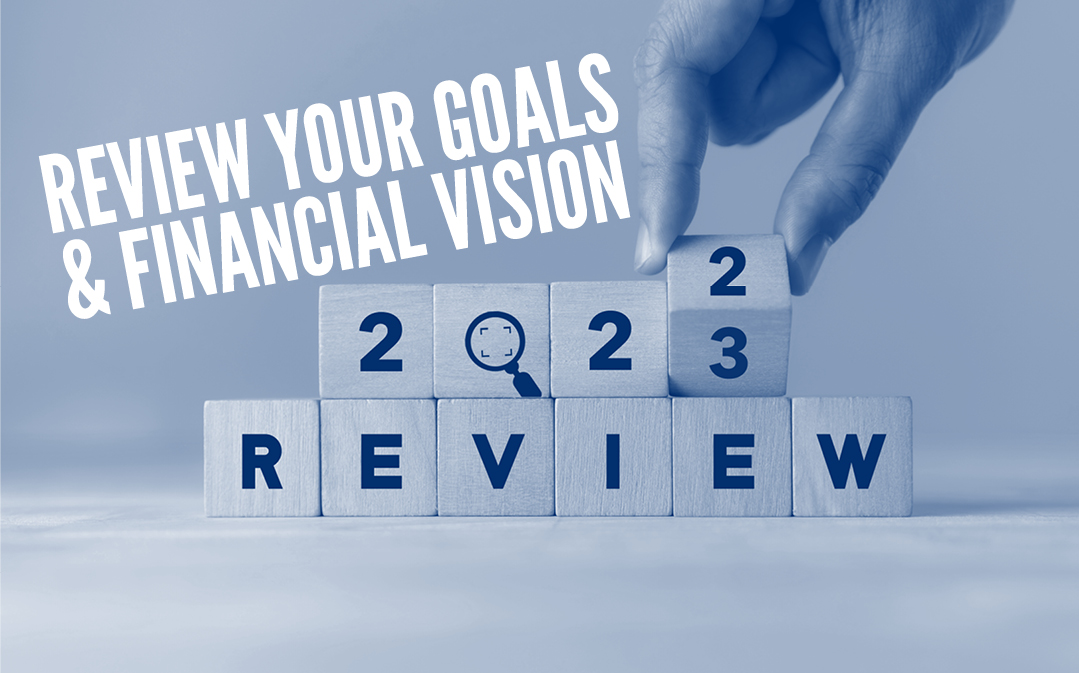Securing your financial future
Life in the Australian Defence Force can be full of challenges. And we know that it’s easy to get caught up in the busyness of everyday and forget about prioritising your long-term goals. But taking intentional action to secure your financial future as early as possible is a wise move. Being proactive means that you’ll put yourself in the best possible position to achieve the future lifestyle of your dreams.
At Capital Properties, we help to keep our clients on track throughout the year. But it’s a great exercise to take time at the beginning of each new year to review your goals and financial vision to make sure you’re on the right track.
Meet with our experienced Property Investment Specialists at our free Capital Properties Discovery Session and get help setting realistic goals for your future financial security.
On the go? Here’s 30 seconds of take outs:
- To achieve long-term goals, you must have a well thought out plan that’s easy to stick to.
- Knowing what floats your boat & having an emotional connection to your end-goal keeps you motivated.
- Goal setting requires you to visualise a specific outcome & commit to it with an action plan.
- The Capital Properties Goal Setting Guide will help you work towards your dream lifestyle.
- Use the SMART framework: Specific, Measurable, Achievable, Relevant & Time-specific.
- Categorise your goals into short, mid, and long-term goals.
- Use the Capital Properties Goal Setting Toolkit to review your goals.
Keep reading >>
What drives you?
It’s a fact that most New Year’s Resolutions are destined to fail. And the key reason for that is most people don’t take the time to really nut out their goals for the future, so they’re guessing at a vague outcome. Secondly, they go about it in a way that doesn’t feel easy or convincing.
For example, the New Year’s Resolution to lose weight won’t last more than a few months (if that) unless the person has identified that the reason for their desired weight loss – presumably to become healthier. And within that lofty goal, there must be some achievable smaller goals to keep them on track, e.g., exercise 4 times a week, reduce processed foods and lose 0.5 to 1 kg per week. If people go in without a plan, with forced exercise, starving themselves and expecting to lose 5 kilos asap, then, we’re sorry to say, it’s highly likely that they’ll fail.
And it’s the same with your financial goals. In order to set long-term goals, you must make a plan that’s well thought out and easy to stick to. That means you have to identify your priorities and key motivations in life. Which means asking some hard questions and being honest with yourself about the answers.
One way to help with this process is to ask yourself one fundamental question and think honestly about the answer.
What floats your boat?
There’s no point in setting goals unless you’re clear about the reason ‘why’ behind them. Really knowing what floats your boat is key to achieving your goals. Having an emotional connection to your end-goal will drive your actions and keep you motivated even when the going gets tough.
Having a vague idea of a ‘better future’ is great but it’s not enough to carry you through inevitable setbacks. If/when the poop hits the fan, you need to know the impact it’ll have if you don’t meet the targets you’ve set and adjust your game plan to stay on track.
For some people the goal is to retire early and travel at leisure. Some want to make sure they’re able to pay for their kids and grandkids education. Some want to live debt free in their dream location and enjoy the good life. Whatever your ‘why’ is, knowing what drives you/ floats your boat and working to achieve it is a priority. And the earlier you figure that out, the more targeted you can be in your financial goal setting strategy.
Why is goal setting important?
At Capital Properties we know that having meaningful goals can set you on a path to future financial security. So, once you’ve figured out what drives you/floats your boat, now you can start goal setting and planning to make it a reality. Though knowing what your dream is, isn’t enough. As Antoine de Saint-Exupéry said, “A goal without a plan is just a wish.”
Goal setting requires you to visualise a specific outcome and commit to it by developing an action plan that will ultimately motivate you to achieve your goal. We know that simply thinking positively about our future boosts our ability to create goals, take action to achieve them and take control over the goal outcomes.
How to successfully set goals/ financial vision
The team at Capital Properties are not new to goal setting. In fact, our Founder & Director Marcus Westnedge has written a book about it. This Goal Setting Guide is an inspiring and straightforward guide to help you plan your dream lifestyle and details the steps you need to take you get there. “The Psychology of Success” uses a powerful goal setting technique called “The Well-Formed Outcome” which guides you to create your plan of attack and hit each of your targets.
Your financial vision is the specific goal you decide for your future financial security. Everyone has goals that are unique to their personal circumstances. You need to decide what your financial vision is so that you have a specific target to aim for.
If you’ve already read the book and are just here for a quick refresh to review your goals & financial vision, then a great place to start (again) is by goal setting with the SMART framework.
Goal setting using the SMART framework
The SMART framework is a great way to sanity-check your goals to make sure they’re still as relevant as ever and you haven’t strayed too far from your original goalposts. Here’s a quick refresher to make sure your goals are:
– Specific
Make sure your goals are as specific as possible. Confirm the ‘what’, ‘how, ‘when’, ‘where’ and ‘why’. What must I achieve? How am I going to get there? When should I achieve this goal?
– Measurable
Making sure you can quantify the success in achieving your goal makes it easier to track progress.
– Achievable
Make sure your goals are realistic. Talking to experts can help you set realistic boundaries.
– Relevant
This goes back to what drives you – your ‘why’. Is the goal really going to push you towards the life that floats your boat?
– Time-specific
Set a realistic timescale and/or deadline. And work towards a specific date.
Review your Goals & Financial Vision
Once you’ve set your goals and are working towards them, don’t forget to take the time to check in regularly revisit them. This is vital to make sure they’re still relevant and to check that you’re making progress.
As the end-goal can sometimes be off in the far-away distance, it’s vital to set shorter-term goals to keep you on track. These smaller milestones will help you track your headway, make any adjustments if needed and motivate you to continue with your plan. Our Capital Properties Goal Setting Toolkit makes this process far less daunting than it might seem.
It’s also important to set medium-term goals. For example, if your long-term goal is to retire with the income from 4 investment properties and the short-term goal is to funnel 20% of your income into financing these investments, then a medium-term goal might be looking at developing a property over 4-5 years with the intent to add value.
So, categorising your goals into short, mid, and long-term goals and setting them against the SMART framework essentially creates a plan for you to follow. It keeps you accountable. And it allows you to measure your progress, so you know if adjustments need to be made, or if you’re on track for successfully achieving your dream lifestyle.
There’s no time like the present to take control over your future financial security. At Capital Properties we love to see our clients shift their mindset to one of possibility and abundance and take action to create the life they’re dreaming of. Our team will help you stay focused on your goals & financial vision all year round.
Check out our FREE investor tools: Sign Up to Our Switched-on Property Investors Program | Your free online property investment toolkit






